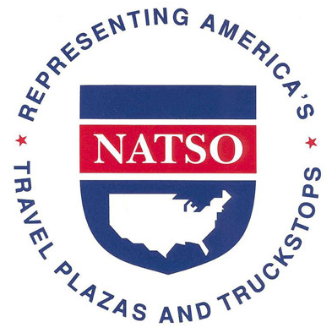Fuel Retailers Urge Lawmakers to Support Private Investment in EV Charging Infrastructure

We all favor increased electric vehicle charging infrastructure
NATSO, the national association representing truckstops and travel plazas, the National Association of Convenience Stores (NACS), the Petroleum Marketers Association of America (PMAA) and the Society of Independent Gasoline Marketers of America (SIGMA) today encouraged lawmakers to support private investment in electric vehicle charging infrastructure and reconsider a provision of the Leading Infrastructure for Tomorrow’s (LIFT) America Act (H.R.2741) that would allow public utilities to use rate payer dollars to invest in electric vehicle charging infrastructure.
NATSO, NACS, PMAA, and SIGMA believe private sector involvement in the installation of electric vehicle charging stations is key to meeting the fueling needs of the motoring public—and the associations’ members are working to invest in that infrastructure. Allowing public utilities to unfairly compete against the private sector by utilizing rate payer dollars to make such investments, however, will effectively destroy the incentive for private sector investment, the groups said in a letter to Congressmen Frank Pallone (D-N.J.), Chairman of the House Committee on Energy and Commerce, and Ranking Member Greg Walden (R-Ore.). Such a practice also unfairly places the burden for infrastructure developments onto the shoulders of low-income Americans.
“We all favor increased electric vehicle charging infrastructure,” said NATSO President and CEO Lisa Mullings. “But for EVs to be successful, policies should seek to attract private investment into EV charging so that we build and foster a dynamic, competitive marketplace for EV fueling. That type of market has served current vehicle owners well and would serve future vehicle owners.”
When public utility commissions allow utilities to utilize rate payer dollars to underwrite their investments in electric vehicle charging, utilities are getting a special leg up into a market without putting a single capital investment at risk. This un-level playing field discourages fuel retailers from investing in EV charging because they cannot compete with utilities in this environment. The end result will be fewer electric vehicle charging stations for consumers and ultimately fewer electric vehicles will be adopted.
“We have no objection to utility companies investing in EV charging infrastructure provided they do so via their unregulated businesses,” said Paige Anderson, NACS director of government relations. “This would result in a level playing field, where all parties are putting capital at risk and have similar incentives to respond to consumer demand and compete on quality and price.”
PMAA President Rob Underwood, said, “With a monopoly position, utility companies will be able to charge consumers more for electricity than the market would bear. And, utility companies will never be able to replicate the ubiquity and convenience of the private sector fueling market. More than 100,000 retail locations provide fuel to American consumers every day. For electric charging to reach that type of market coverage, we must have private investment.”
Furthermore, allowing utilities to fund EV infrastructure development through the rate base will saddle low-income electricity ratepayers with the costs of electric vehicle charging infrastructure.
“We understand the need to develop electric vehicle charging infrastructure and we are working to invest in that infrastructure and have been doing so for some time,” said SIGMA President Brad Puryear. “But funding that development through electricity ratepayers will result in less EV charging infrastructure and will create a regressive funding scheme that is not fair to low-income Americans.”
Category: Equipment, Featured, General Update, Green, News










